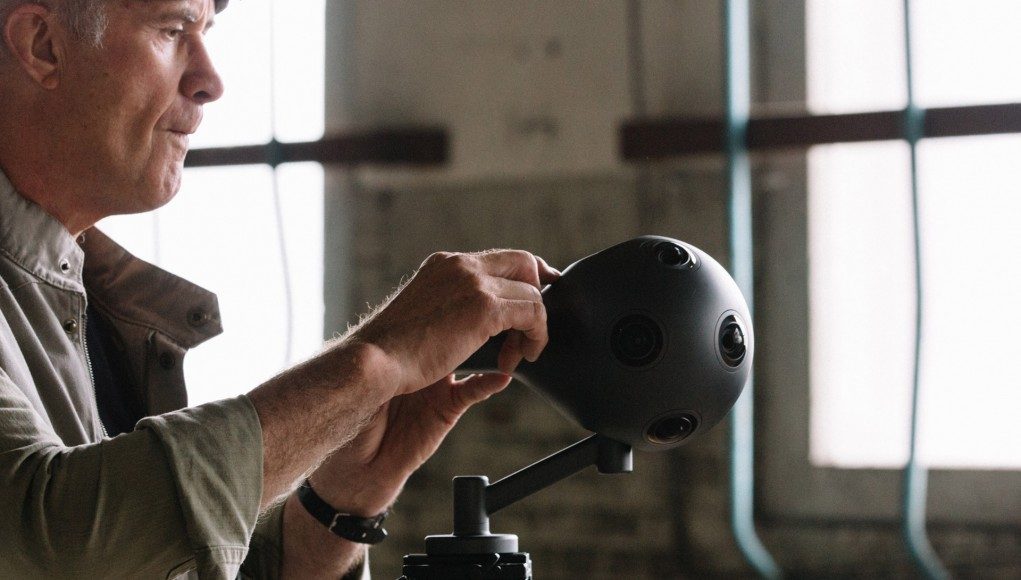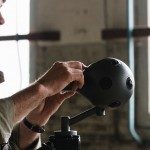Nokia today announced a new VR camera that they’re calling ‘OZO’. The camera, built specifically for the professional market, shoots 3D 360 degree video and captures surround sound audio simultaneously. Nokia is touting Ozo’s ability to instantly preview the footage without the need for stitching as a key differentiator.
After having sold its prominent mobile phone business to Microsoft in 2013, Nokia Technologies, a subsidiary in Nokia formed in 2014, continues on as the company’s licensing and R&D arm. Nokia Technologies and Ozo marks a new chapter for the 150 year old company, which has seen its share of ups and downs in recent years. The new heading aims toward rebuilding the company’s IP portfolio and a focus on innovative digital media, starting first into the growing VR industry with the Ozo VR camera.
Ozo is a custom built camera that the company says is designed specifically for professional VR filmmakers. The fairly compact device features eight cameras with synchronized global shutters and eight integrated microphones which gather directional audio while filming. Road to VR has exclusive early shots of the camera, which looks like an elegant alien hood ornament (meant in the nicest way).
While the company isn’t yet delving into detail about Ozo’s specs, they are touting an instant preview feature as a major differentiator to other VR camera solutions. The real time preview allows filmmakers to see through the camera’s lenses, with a VR headset in 3D with headtracking, instantly, without sending the data to a render farm to be stitched together after capture. Filmmakers can also monitor each individual camera stream or pan around the spherical composition on a monitor.
The encoded footage for final playback can also be played without the need for stitching using Nokia’s own software, though content creators can stitch the footage optionally and distribute it without restrictions.
A standard SDI and power cable can also be used with the camera while on set, but Nokia’s Ozo can also be operated wire-free, using an internal SSD and battery, while being controlled remotely via wifi. Nokia says that the camera is designed to work with existing professional workflow, and mounts to standard professional camera tripods.
Nokia plans to release Ozo in Q4, 2015. Pricing and exact camera specifications will be revealed at a later date. We’ll have a hands on soon with the camera itself and the resultant footage.
Disclosure: Nokia covered travel and lodging expenses for Road to VR to attend the Ozo reveal event.









